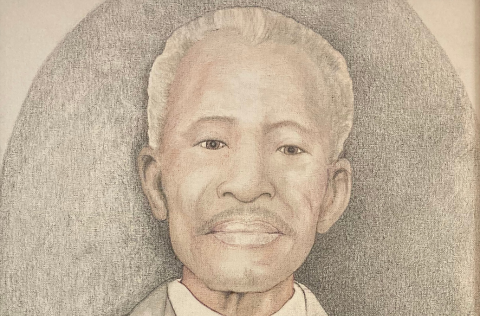A Portrait of Courage - Thomas Laws & the 3rd Battle of Winchester
Published on September 06, 2024

During the Civil War Winchester was the scene of six battles and changed hands between the Union and Confederacy 72 times, more than any other town in the country. The reason? Our City was a strategic transportation hub in the “breadbasket of the Confederacy,” as the Shenandoah Valley was often called.
In September 1864, General Philip Sheridan had recently been appointed the new commander of the Union’s “Middle Military Division,” which put him in command of the largest U.S. force ever assembled in the Shenandoah Valley. To follow up on the Union’s recent capture of Atlanta, President Lincoln and General Ulysses S. Grant wanted to keep the initiative. They ordered Sheridan to start a campaign to retake the Valley from Confederate General Jubal Early’s “Army of the Valley.”
Before striking against Early, Sheridan needed to know whether or not Early’s Army would receive reinforcements (and if so, how many?). He needed spies to help him find this intelligence.
Thomas Laws: Enslaved Man, Spy, Hero
Thomas Laws was a forty-seven-year-old enslaved Black man who lived in Clarke County with his wife, Mary. Laws had a permit that allowed him to pass freely in and out of Winchester to sell vegetables because his enslaver had a home in the City. Because of his ability to move freely in and out of town, and his race, Sheridan and his subordinates knew Laws could be an effective spy to share information about Early’s command to the Union.
Even though Black people had played important roles in gathering intelligence for the Union, most Confederates “did not believe Blacks were mentally capable of disclosing much military information,” said Douglas Waller, a Civil War espionage historian.
Laws agreed risk his life to act as a messenger for Sheridan by passing information between the general and a Quaker woman named Rebecca Wright, who lived in Winchester. Laws was able to conceal the messages by wrapping them in tin foil and putting them in a small capsule that he carried in his mouth. This way, if Confederates stopped him, he could easily swallow the messages.
On September 16, 1864, Laws first arrived at the home of Wright on Loudoun Street. He convinced her to read the message from Sheridan, and she was able to provide information that Early would not be receiving reinforcements. In fact, she confirmed that Early would actually be sending an artillery battalion and an infantry division out of the area to help bolster the Confederate’s lines around Petersburg, Virginia.
The intelligence gathered by Laws proved invaluable to the Union’s success. With a better understanding of Confederate vulnerabilities, Sheridan launched his offensive three days after Laws returned to Clarke County, roundly defeating Early at the Third Battle of Winchester. This battle was the last time that Winchester changed hands in the war.
A Commemoration of Thomas Laws
You have an opportunity to learn more about Thomas Laws and honor his legacy! A program will be held at 3:00 p.m. on September 19, 2024, at the site of the Third Battle of Winchester. The event will commemorate Thomas Laws and his lasting impact on the battle and the trajectory of the war.